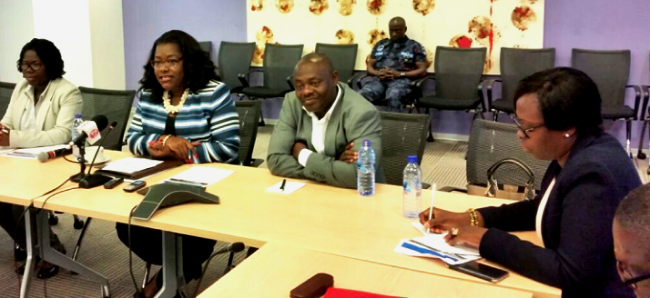
Job creation project for LEAP beneficiaries
The Ministry of Gender, Children and Social Protection has embarked on a programme to train beneficiary households of the Livelihood Empowerment Against Poverty (LEAP) programme in coastal and in-land fishing communities to take up productive ventures.
The intervention, with support from the World Bank, is aimed at developing productive activities in fishing and peri-urban agriculture areas to support people living in such communities.
At a workshop in Accra yesterday to discuss appropriate ways of implementing the programme in the coastal belt and in-land areas, the Minister of Gender, Children and Social Protection, Nana Oye Lithur, said the project would complement the LEAP cash transfer by boosting the income of beneficiaries and making them more productive to facilitate their graduation into more market-oriented interventions.“This will boost their productive capacity and income level,” she added.
Expand social protection
Nana Oye said the government had decided to expand its social protection intervention to reduce poverty levels.
The programme, she stated, is targeted to benefit 200,000 extreme poor households in all 10 regions of the country by the end of the year.
She noted that social protection had proved to be a useful tool in poverty reduction and in closing inequality gaps and cited Brazil, Mexico, China and South Africa as countries that had adopted such approach.
The minister added that all beneficiaries of LEAP were to be enrolled for the National Health Insurance Scheme (NHIS), saying that so far 65 per cent of the beneficiaries had already been registered for the programme free of charge.
Nana Oye said an interim impact assessment conducted jointly by the University of North Carolina, the Food and Agricultural Organisation (FAO), the Institute of Statistical Social and Economic Research (ISSER) of the University of Ghana and North Carolina University of USA showed that the LEAP programme had a positive impact on access to health care, education, productive activities and productivity in the local economy.
She said the report further indicated that LEAP had a potential to make an even greater contribution to the government’s long-term strategy for tackling poverty, especially as a result of the transformative impact the programme had on targeted families.
Productive ventures
The Senior Country Operations Officer, World Bank, Ms Beatrix Allah-Mensah, in a statement, said social protection assistance could not be completely effective if it was not grounded within a robust social protection system that ensured productive inclusion.
She said providing cash transfers, as a first step, would be most effective if it existed within a larger system of calculated and intentional interventions, adding that as LEAP expanded its reach, it was important to consider the gains made if the intervention was tied to systematic productive inclusion activities among its beneficiaries.
“It is essential that the activities that we identify in the coastal areas promote job creation or boost existing jobs that are viable in the targeted areas, but also include some level of financial literacy, skills training, access to technology, as well as focus on providing access to markets for the vulnerable beneficiaries who would most likely not have access,” she said.
She called for extensive coordination among ministries, departments and agencies and all stakeholders to ensure that the programme is successful.
Writer's email:
